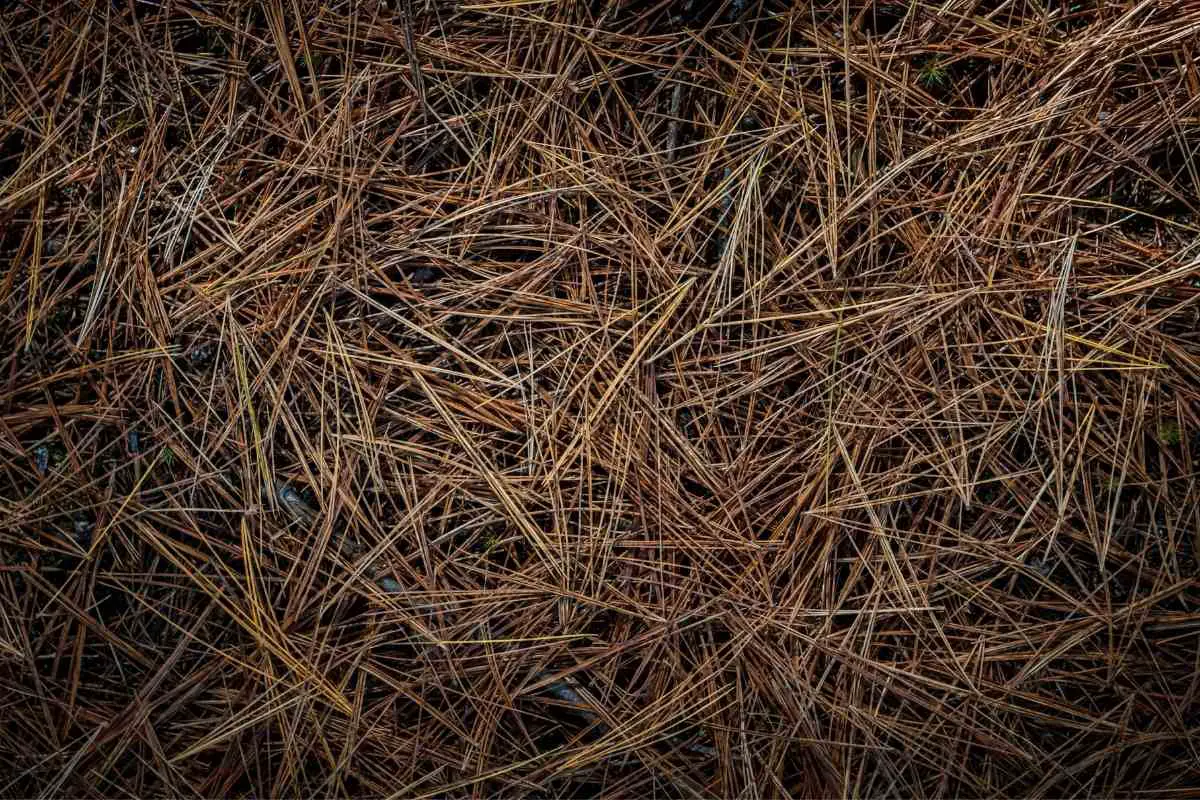Depending on where you live, you may find that pine needles that are shed from mature trees can cause a problem for your garden.
Or perhaps you have been using pine needle mulch to fertilize your garden, but it doesn’t seem to be working.
There could be a simple reason why!
Pine Needle Acidity
The shed needles from pine trees can form a carpet around their trunk.
Rumor has it that these pine needles affect the pH of the soil under the trees, causing it to become too acidic.
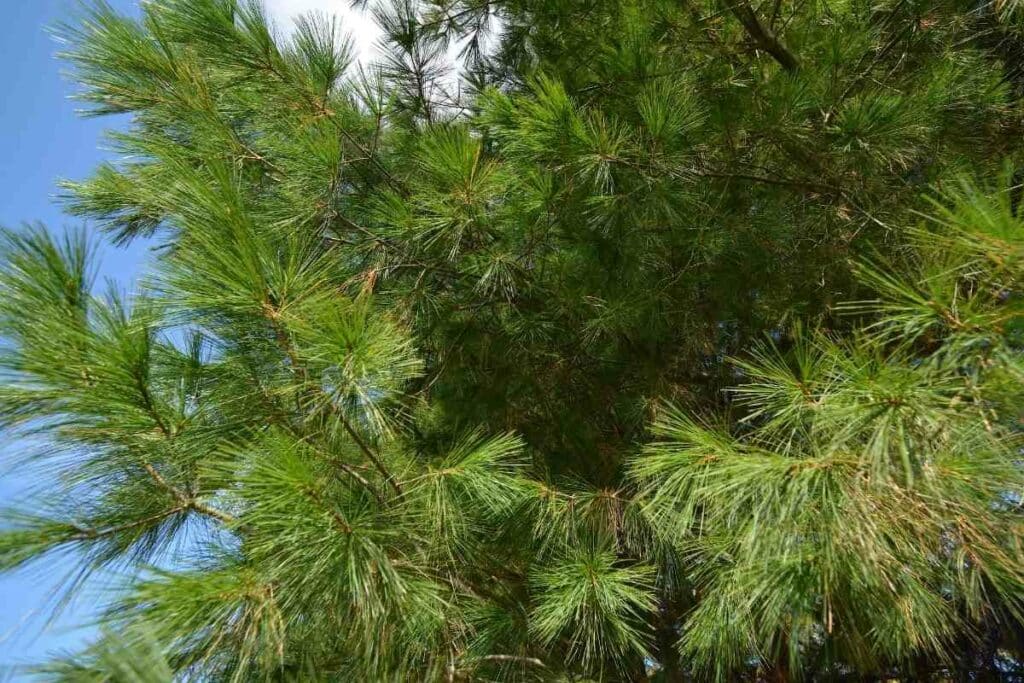
This myth perpetuates that the acidity of the soil can therefore kill plants that are near pine trees.
Whilst pine needles are indeed acidic, with a pH of 3.2 to 3.8, they tend not to affect the soil if they have simply fallen from a nearby tree.
However, there is some truth in the fact that pine needle mulch can have a detrimental effect on some plants that really don’t like pine needles.
Pine Needle Mulch
Many gardeners use pine needles as mulch.
Mulching helps to reduce weeds and maintains good moisture in the soil. Slugs, snails, and other insects are often deterred by mulches.
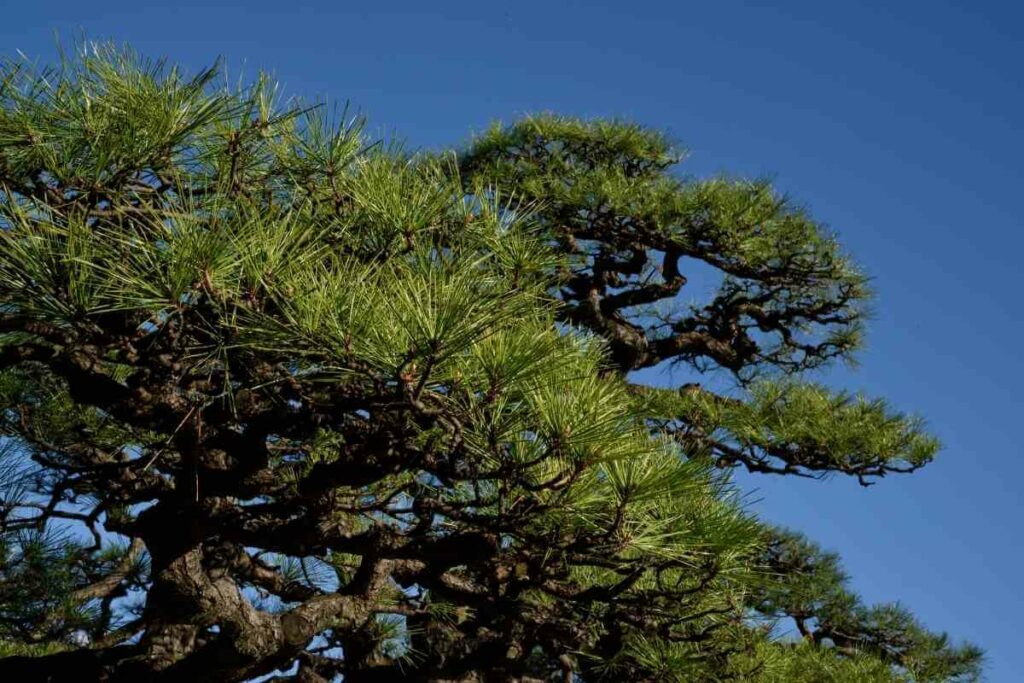
Pine needles are often harvested in the fall and later used for mulching.
Pine needle mulch can gradually acidify the soil, and, within three to four months, you may find your soil’s pH has dropped.
This does not last for long, but frequent pine needle mulching can maintain acidic soil. This is great for acidophilic plants (those that thrive in acidic soil) such as petunias.
However, care should be taken as not all plants like pine needles!
Plants that Don’t Like Pine Needles
When it comes to which plants don’t like pine needles, here are eight plants that are not the pine needle mulch’s biggest fan!
1. Roses
Many conditions help roses to grow well:
- sunlight hours
- water
- well-circulated air
- humidity
- and the right soil acidity
However, roses are not that fond of the common pine needle.
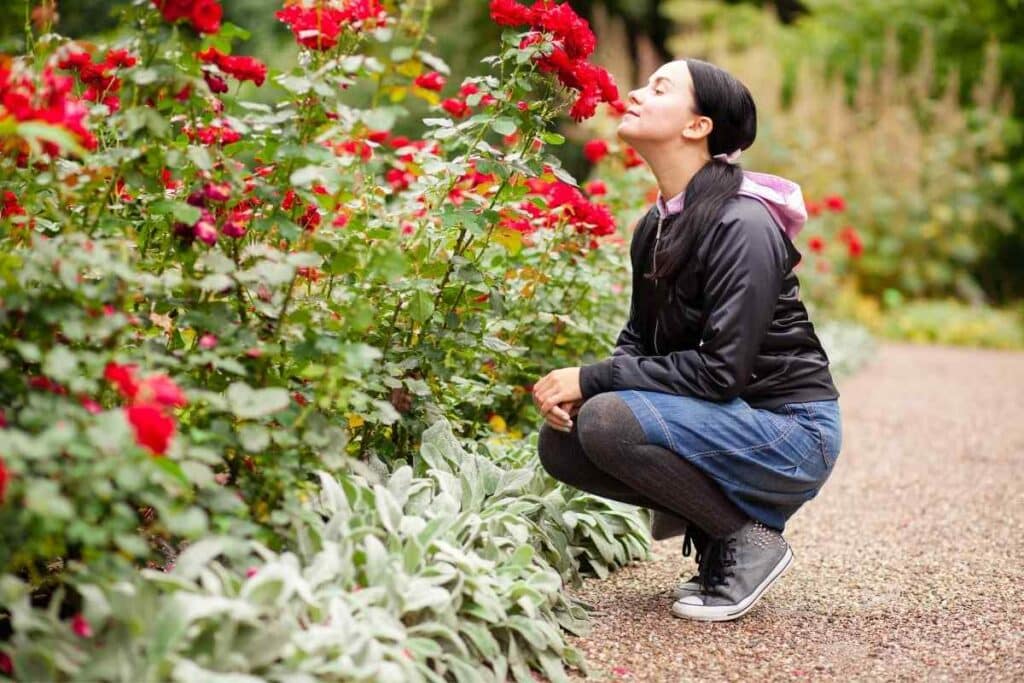
Given that pine needles are used as mulch, it may not be the best choice if you are trying to cultivate roses.
If you’re looking for an organic mulch that’s perfect for your scented beauties, you’d be better off choosing a sugar cane mulch, a mushroom mulch, or garden compost.
Sugar cane has enzymes within it that encourage microorganisms within the soil to provide nutrients.
It’s also quick to break down and therefore provides nutrients quickly.
2. Asters
This large group of plants has many species and can vary in color, height, and garden potential.
There are fall and summer varieties, with daisy-like flowers in shades of pink, white, red, blue, and purple.
Asters tend to be fairly easy to grow unless the solid is clayey or dries out in the summer season.
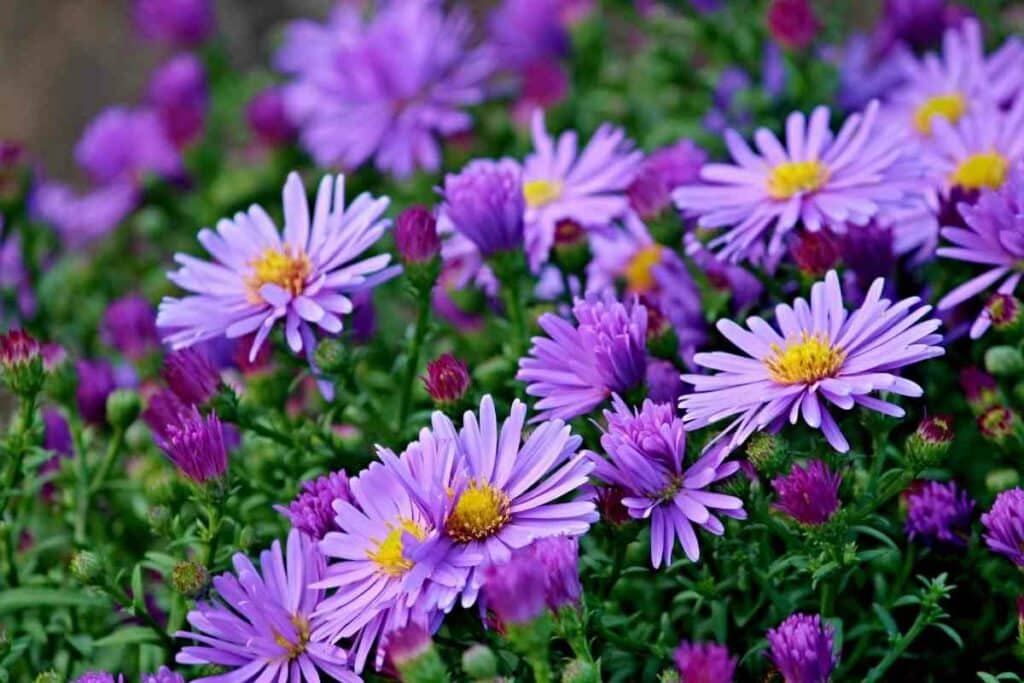
However, another thing that can have a detrimental effect on the growth of these beautiful blooms is pine needles.
Asters tend not to like a pine-needle-rich environment.
So, perhaps avoid that pine needle mulch or avoid trying to grow them in a woody, pine-needly area if you want the best possible asters.
3. Boxwood
Boxwood shrubs are densely packed evergreen bushes that are mainly grown for their lush green foliage.
Frequently found in ornate, formal garden borders, boxwood is quite straightforward to grow.
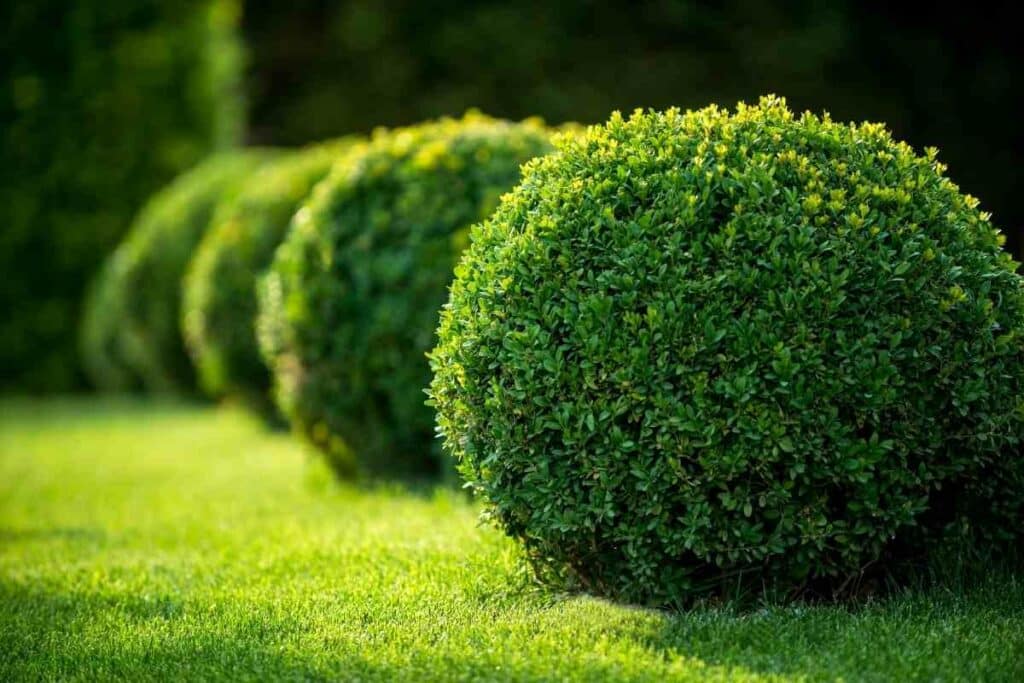
For the best soil conditions for boxwood shrubs, the soil should have a pH of between 6.5-7, so an almost neutral pH.
Testing the soil before you plant your boxwood is the best idea. However, once established, you can also adjust the pH with mulches.
If your soil is too acidic, adding lime will increase it.
As Mentioned – Pine needle mulches can lower the pH of soil. Therefore, for optimal boxwood soil conditions, you should stay clear of pine needles. These expensive plants will thank you for it.
4. Thistles
Another prickly plant, thistles do not often grow well when mixed with pine needles.
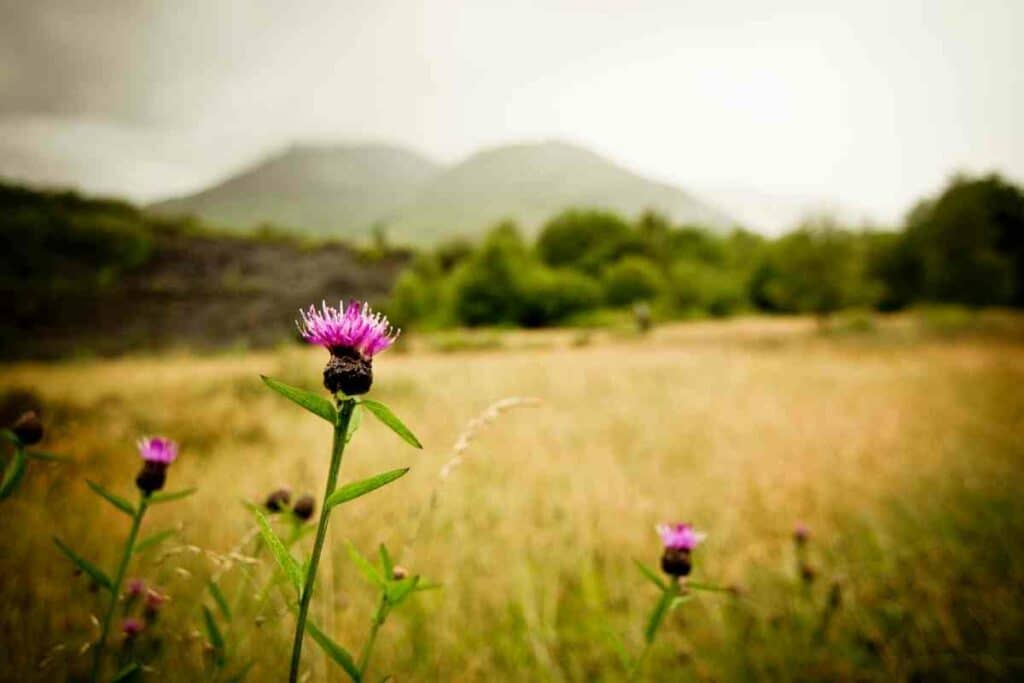
Despite being the national flower of Scotland, thistles are often thought of as a pest in the US.
As such, thistles are not always the most popular garden plants, but they can be both useful and attractive.
The seeds of thistles are an important source of food for farmland and garden birds.
However, if you’re keen to bring in some of your Scottish heritage or just like the look and positive qualities that thistles can bring to your garden, it is best not to use pine needles as mulch.
5. Lavender
Lavender! So many varieties, such delicious scents!
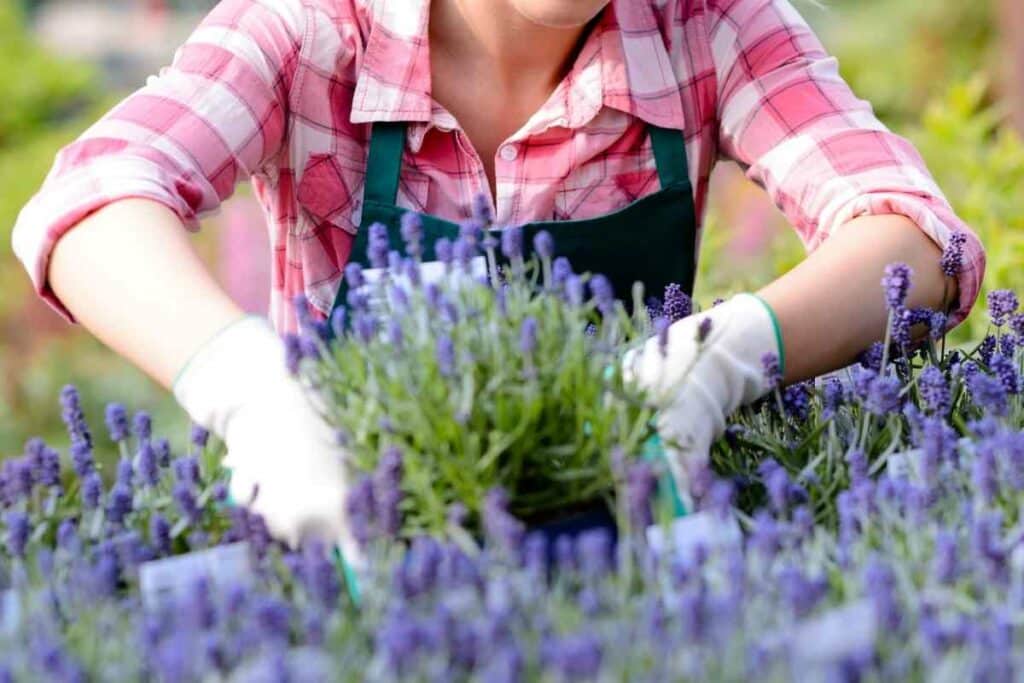
Lavender plants are generally fairly easy to care for, but they do prefer drier, well-drained soils.
Pine needles can help the soil retain water and therefore hydrate the plants, which is not great for many lavender varieties.
6. Artichokes
Artichokes are a large perennial plant that is native to the Mediterranean region.
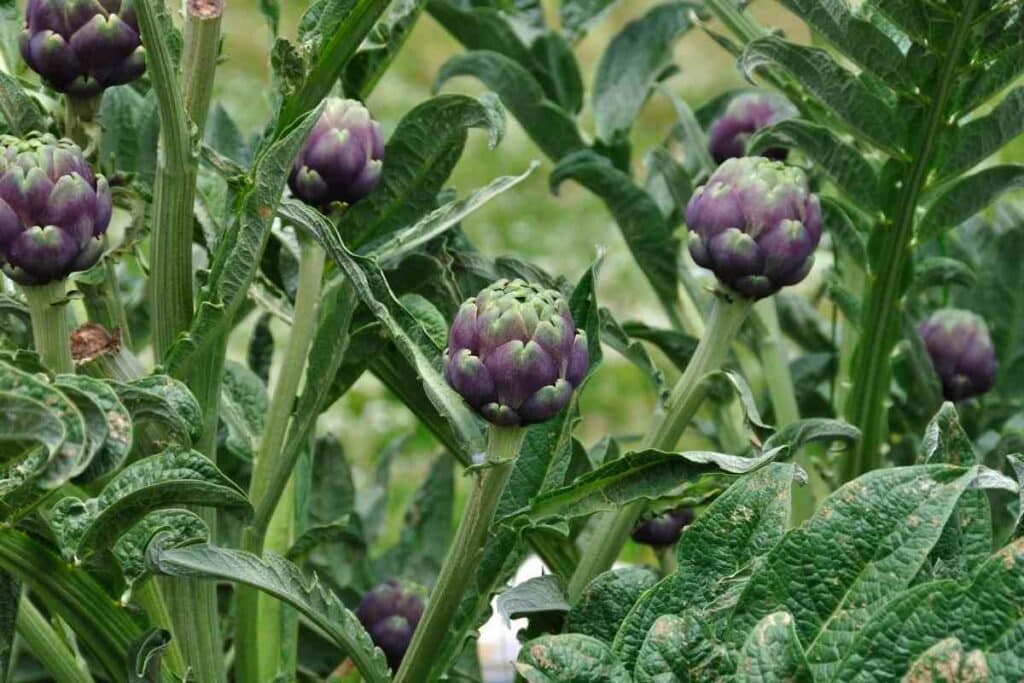
They have a long history of uses including the use of the leaves as a source of antioxidants or the bulbs to cook and eat.
However, one thing that they’re not too enthusiastic about, is pine needles or pine needle mulch.
7. Euphorbias
This large genus of plant has over 2,000 species!
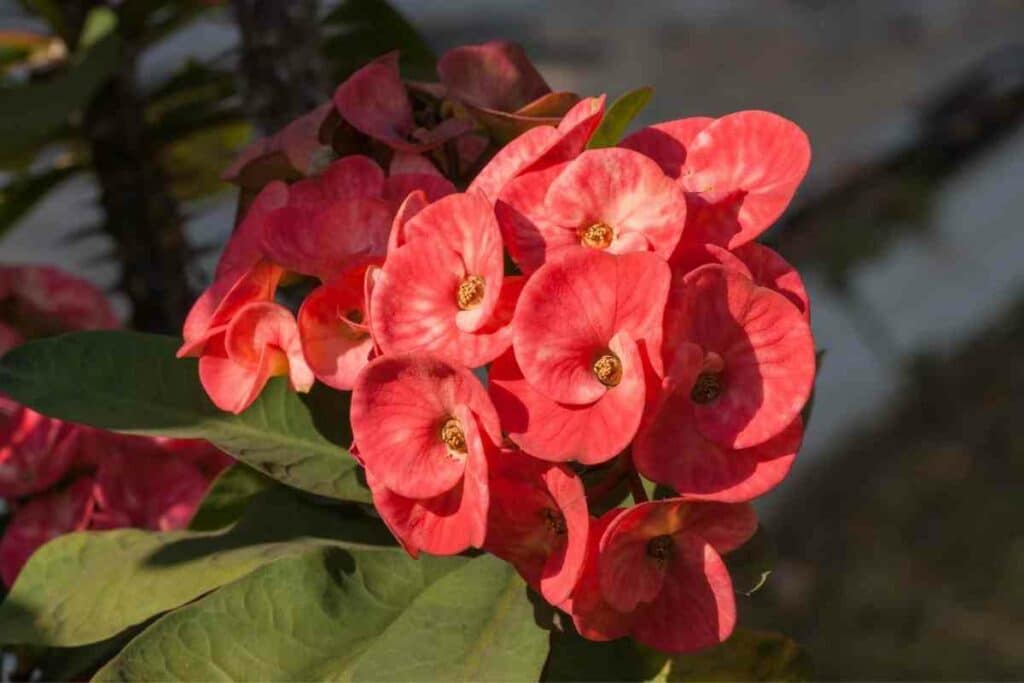
Some 1,200 of these are succulents and come in a wide range of shapes and sizes. Euphorbias are pretty easy to care for.
They do best in well-drained soil.
As a Result – Pine needles can cause issues as they can cause water retention leading to soggier soils.
8. Decorative Garlic
Belonging to the Allium genus, decorative or ornamental garlic comes in many color varieties including:
- blue
- white
- yellow
- lilac
- burgundy
- dark purple
- and pink
The flowering lasts for about a month.
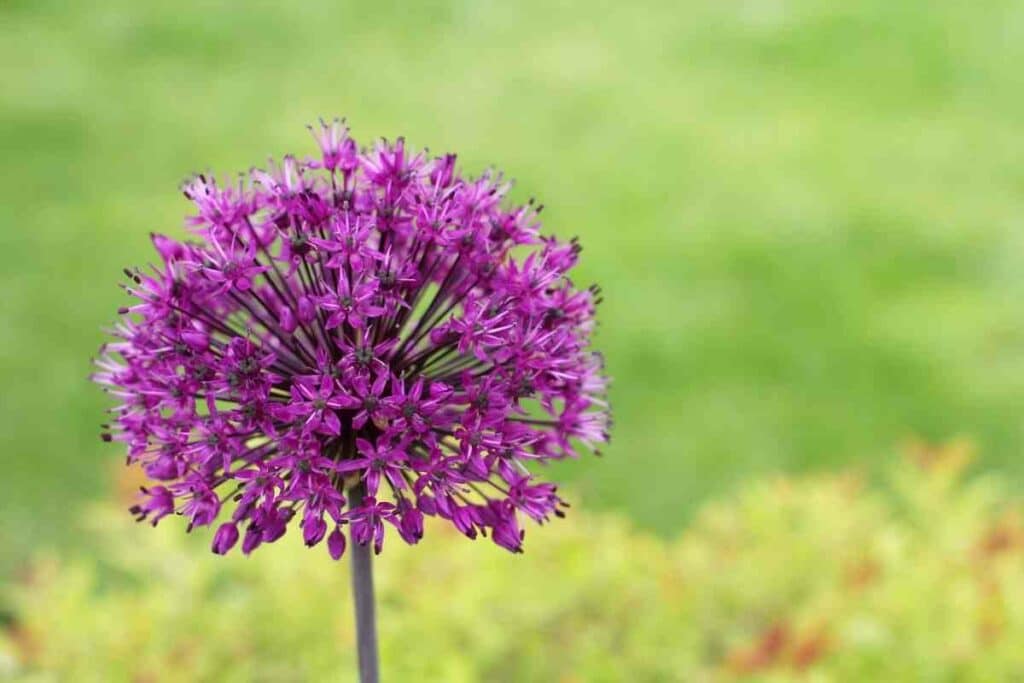
Decorative garlic plants, like most types of onion plants, are steppe plants, originally grown on treeless slopes.
So, for the best growth, lots of sunlight is necessary. This is why they do not do so well under the dense greenery of pine trees.
Likewise – Decorative garlic dislikes acidic soil, which is often found under pine trees due to the needles dropping, so it’s wise not to use a pine needle mulch on them either.
They prefer slightly drier soil too, so avoiding needles will help to keep the soil well-drained.
Final Thoughts on What Plants Do Not Like Pine Needles
Whilst many plants will thrive in soil that has a covering of pine needles, there are a few that are a little more sensitive.
When it comes to pine needles, they can help keep soil moist, which some plants dislike, and can also lower the pH of the soil.
Many plants may struggle in soil that’s more acidic.
If you’re thinking of planting one of the eight plants listed above, take care of where you plant them and avoid pine needle mulching to get the best out of your bushes and blooms.
